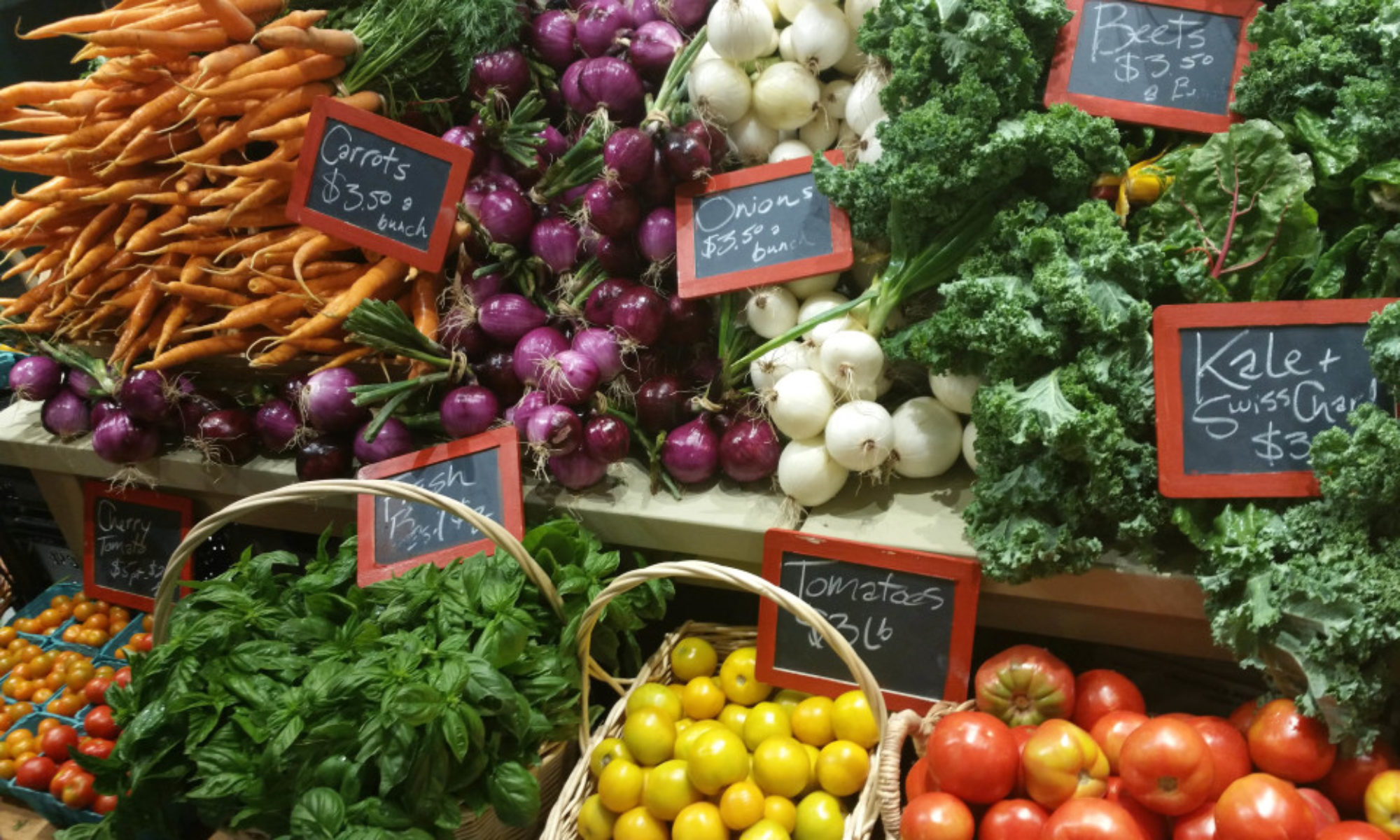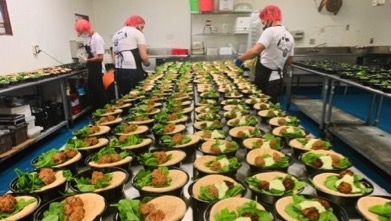Because we had capacity in our kitchen following the demise of some of our food entrepreneurs in the pandemic, we started supplying prepared meals to Chelsea kids through a program developed with the help of the Shah Foundation, the Boston YMCA, the Massachusetts Department of Elementary and Secondary Education and the USDA. Today, we deliver breakfast and lunch to 1,200 Chelsea kids seven days a week.
What follows are snapshots in the life of this program.
AN ANXIOUS GAZE
Daniel is a young Salvadoran cook who has been laid off twice in the last three months. One of the companies participating in the Chelsea program, Farm Girl, has hired him as a sous-chef, but he also participates in the delivery of our meals to Chelsea residents. I am driving the delivery truck. As we approach the Salvation Army where our food gets distributed, he turns to me and asks, fear in his eyes: “Will this program continue at the end of the summer?” I don’t know the answer. Later, the program gets extended by two weeks. I run into him in the kitchen and he smiles at me, relieved to know the cliff has been pushed back. There are no small victories when you live day-to-day.
A COMMON BOND
Daniel is handing out the food from our truck. He spots a friend of his, a young lady in the long line of moms and dads waiting for food, often with children in tow. She’s also Salvadoran. They start talking as soon as the young woman comes within earshot. He cannot stop working because the line moves fast, and he needs to keep handing out the boxes. My Spanish is virtually non-existent, but I can sense his pride in serving the food and her gratitude in receiving it. There is not much that separates the people who work in our kitchen from the people who collect the food we hand out.
TRIUMPHANT RETURN
Nelson is an older Uruguayan gentleman who used to volunteer at the Chelsea Salvation Army while looking for a job. His energy had caught the attention of the lead chef of our Chelsea program, Lorena. As our program was growing, she decided to hire him. Nelson is now a paid employee of Farm Girl who prepares the food in the kitchen and participates in the delivery. The first time he returned to Chelsea, he was immediately mobbed by an affectionate crowd of volunteers wanting to know all about him and his new job. Later, I apologize to the head of the Chelsea Salvation Army, Captain Gonzales, for stealing one of his volunteers. “Quite the opposite”, he tells me. “getting our people back into a job is the best thing that can happen to them.”
ALL IN THE FAMILY
Lorena is orchestrating the ballet of employees preparing meals in the kitchen. Her mom is at the hot line cooking day-in, day-out. Lorena’s daughter is assembling breakfast groceries. We originally conceived of Stock Pot Malden as a local employment platform and I silently enjoy watching three generations work together in our kitchen for the first time. Last weekend, Lorena’s dad visits our kitchen. She has scrubbed the walls as if it were her own kitchen, but the paint in our bathrooms and hallway is worn out and fading. Her dad has some experience as a landscaper and painter. “If you buy the paint, I will do the job for free”, he offers. We happily sign him up.
PROTEINS FOR CARDBOARD
The reimbursement rate from the USDA is not overly generous and we struggle to break even. Because we deliver meals for 3 or 4 days at a time, we need to buy expensive cardboard boxes. One day, Captain Gonzales from the Salvation Army and I discuss that we would love to spend a bit more on ingredients and a bit less on packaging. A bit later, and on two occasions, a Salvation Army truck miraculously drops several pallets of free cardboard boxes in our kitchen, relieving some of the cost pressure on our program. Next round of meals includes more expensive spicy turkey balls and hummus. The kids love it. Our controller a bit less so.
FREE FOOD MARKETING
The program has been steadily growing. We are at capacity at the Salvation Army because we serve 800 kids twice a week and cannot load any more boxes onto our trucks. Also, the line is quite long, and the car traffic occasionally clogs the center of town. Our partners at the Shah Foundation, Eliza and Michael, call to let us know they have partnered with Temple Emmanuel to become our second distribution point. On the first day of distribution, we park the truck on the quieter side of the synagogue and have very few takers. Our two partners at the Temple, Marsha and Herb, join us in moving to the end of the street on the busy Cary Square and we start brandishing signs advertising the program. Over a period of two weeks, people start coming and we now serve 400 kids at the Temple. The most touching? There is a bus stop nearby and some people come on the bus to collect the food, awkwardly climbing back on the next one, carrying multiple boxes for their kids. The bus driver waves at us appreciatively. We are all in this together.
GET OFF THE STROLLER
The meal boxes are bulky. While we pack them in single and double boxes, a mother of five has to carry three of those boxes. Some parents come equipped with rolling grocery carts, but others have their children with them. A common scene is to see the parent ask the kid to get out of the stroller if they can walk and replace them with the meal boxes. Some kids know the routine and accept it. Others start protesting or crying, leading to a motherly harangue on the value of trading short-term comfort for food to eat. I think of Maslow’s hierarchy …
SCHINDLER’S LIST
An iconic scene in Steven Spielberg’s movie Schindler’s list is Liam Neeson regretting toward the end of the movie that he was not able to save more Jews from Nazi concentration camps, given the magnitude of the holocaust. It would be quite pretentious for us to identify with Oskar Schindler, the depth of distress he alleviated and the risk he personally took during the war, but the Chelsea kids’ program also generates this feeling of never being able to do enough. We serve 1,200 of them (coincidentally, Schindler saved 1,200 people in his factory), but there are 6,000 school-age kids in Chelsea and 60-80% of them are thought to be food-insecure. We shall not rest …


